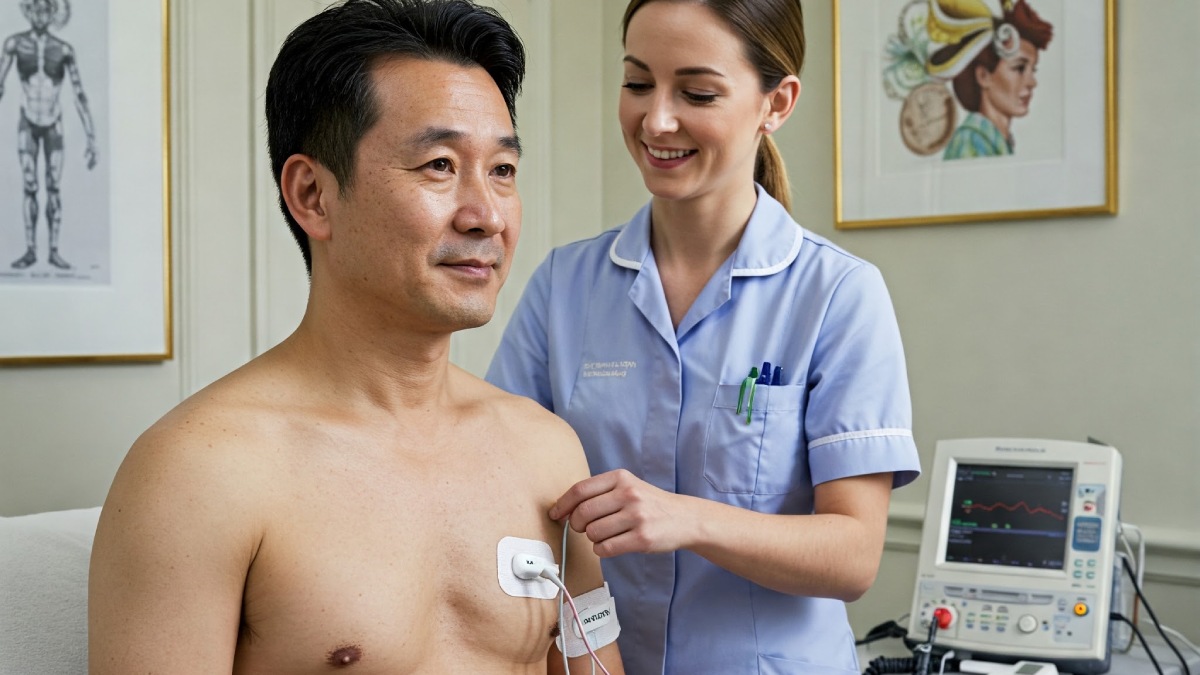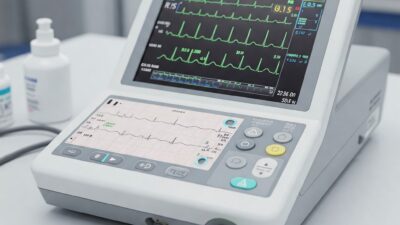When people book a full body MOT, they’re often looking for peace of mind – a comprehensive overview of their health that helps them stay one step ahead.
Among the many things these checks can uncover, one of the most important is the condition of your heart. Heart health is central to your overall wellbeing, yet heart disease remains one of the UK’s leading causes of death.
Let’s look at full body health checks and heart tests in more detail to find out how these health insights can help you stay ahead of your health.
Why Heart Health Is a Core Part of Private Health Checks
Heart disease can develop silently, often without obvious symptoms until it becomes more advanced. For some, the first sign of a problem can sadly be a heart attack or stroke. This is why heart health is a core component of most private health checks.
A full body health check that includes heart tests offers a preventative approach by identifying early warning signs of cardiovascular disease (problems with the heart, blood vessels, or blood). Rather than waiting for symptoms, the tests are designed to detect risk factors like high blood pressure, raised cholesterol, and abnormal heart rhythms.
By flagging these issues early, individuals are empowered to make positive changes before issues become serious. Health professionals can also help you manage your risk to protect your long term health.
Heart Related Tests Commonly Included in Full Body Health Checks
You may be wondering what’s included in a health screening package. Most full body MOTs include a range of heart related tests, but the exact test assortment may vary depending on the provider and the level of check up.
The following are common heart tests in a full body check.
- Blood pressure – measures the force of blood inside your arteries and can detect high blood pressure (hypertension).
- Cholesterol panel – assesses total cholesterol, LDL (low-density lipoproteins or “bad” cholesterol), HDL (high-density lipoproteins or “good” cholesterol), and triglycerides. High cholesterol levels can lead to a fatty substance called plaque building up in your arteries.
- Blood glucose – having high glucose (sugar) levels can be a sign of diabetes, which increases your cardiovascular risk.
- BMI and waist-to-hip ratio – you may have your weight, height, body composition and fat distribution measured.
- Resting ECG (electrocardiogram) – a non-invasive test using stickers on your chest to record the heart’s electrical activity and rhythm.
- Stress ECG or CT coronary calcium storing – sometimes included in premium packages, a stress ECG shows how well your heart performs when you are exercising, and a CT calcium score checks for plaque (fatty deposits) in the arteries that supply your heart.
Some providers offer tiered packages, so you can select the level of heart screening that matches your needs and budget.
What These Tests Reveal About Your Heart Health
Each of the common heart related tests plays a role in painting a more detailed picture of your heart health.
- High blood pressure forces the heart to work harder. This can damage the blood vessels over time and increase the risk of heart attacks, strokes, and heart failure.
- High cholesterol can lead to atherosclerosis, where fatty deposits build up in your arteries and make them narrower. This can increase your risk of angina, a heart attack, or a stroke. It can also lead to blood vessel disease elsewhere, affecting your kidneys or limbs.
- High blood glucose levels can indicate pre-diabetes or diabetes. Having diabetes increases your risk of cardiovascular disease, so it is important that treatment and lifestyle changes are implemented promptly.
- A high BMI or waist-to-hip ratio suggests excess body fat. Carrying excess fat around your waist increases your risk of heart disease and other health problems.
- Abnormal ECG results may reveal irregular rhythms (arrhythmias) or signs of heart damage. These may need monitoring or treatment.
The good news is that even if screening detects an abnormality, any risk factors can often be managed. With early detection, you can make lifestyle changes or seek treatment to reduce your risk and protect your heart.
Who Should Prioritise Heart Screening Within a Private Health MOT?
While anyone can benefit from understanding more about their health, certain groups should make heart health screening a priority.
People over 40
Risk increases with age, and issues like high cholesterol and high blood pressure tend to start emerging from your 40s onwards.
Those with a family history of heart disease
Genetic factors can predispose you to heart problems, even if you feel perfectly healthy.
Individuals experiencing high stress, poor sleep or a sedentary lifestyle
These lifestyle factors are increasingly being linked to heart disease.
Smokers, heavy drinkers, or people with poor diet
These habits can directly impact heart health, so regular monitoring is important.
Anyone with mild symptoms
Symptoms like fatigue, shortness of breath, dizziness, or occasional chest discomfort might seem minor, but it’s worth getting them checked to rule out a more serious heart condition.
Amateur athletes
If you’re preparing for an event such as a marathon, Iron Man or cycling challenge, you may want peace of mind around the health of your heart whilst you are training and during the event.
What to Do with Your Results
If your private health check flags any potential concerns, the next steps are important.
- Share your results with your GP or cardiologist. They can interpret more complex findings and recommend follow up investigations or treatment.
- Make lifestyle adjustments. Many heart health risk factors – like cholesterol, blood pressure and sugar levels – respond well to dietary changes, regular exercise, stress management, and better quality sleep.
- Monitor regularly. If you have abnormal results or existing risk factors, your provider may recommend annual checks or specific monitoring intervals.
- Consider follow-up testing. This might include an echocardiogram, Holter monitor, or a CT scan to explore findings in greater depth.
When you have a full body health check with heart tests, you become empowered to take ownership of your health. However, it is vital to integrate these insights into your ongoing care.
How skreen Helps You Choose the Right Full Body Check
skreen makes it easier to find a private health check that fits your needs. Our platform allows you to compare private full body MOTs based on what’s included – including whether heart health tests like ECGs and cholesterol panels are part of the package.
With skreen, you can:
- filter by test inclusions (for example, ECG, stress tests, or CT calcium scoring)
- browse providers in your area or another convenient location
- read reviews from other users
- check prices
It’s all about helping you make an informed, confident choice.
About our Content
skreen is not a medical provider and does not diagnose or treat conditions. Our content is informational and should not replace professional medical advice.
We’re serious about being a trusted source of information and sharing only the highest quality, medically reviewed content. You can review our Content & Editorial Policy here.




